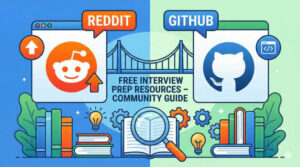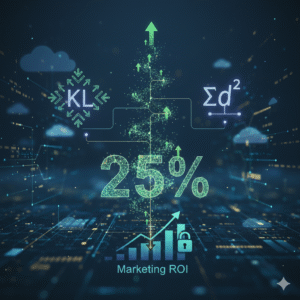General
1. 📘 The Pragmatic Programmer by Andrew Hunt and David Thomas
Overview: This classic book offers practical advice and best practices for software developers. It covers a wide range of topics including coding techniques, debugging, and design principles.
Why Read: It helps developers think about their work more systematically and learn to write cleaner, more efficient code.
2. 📙 Modern Software Engineering by David Farley
Overview: Farley delves into the principles and practices that define modern software engineering, emphasizing continuous delivery, test-driven development, and incremental improvement.
Why Read: To understand the evolving landscape of software engineering and the practices that lead to high-quality, maintainable software.
3. 📗 Code by Charles Petzold
Overview: An exploration of the fundamentals of coding and computer science, from binary and logic gates to the creation of a full-fledged computer system.
Why Read: It offers a deep understanding of how computers and code work at a fundamental level.
4. 📕 A Philosophy of Software Design by John Ousterhout
Overview: Ousterhout presents a series of principles for software design, focusing on the importance of managing complexity and improving code readability.
Why Read: To gain insights into making software design decisions that enhance simplicity and maintainability.
Data Structures and Algorithms
5. 📘 Introduction to Algorithms by Thomas H. Cormen, Charles E. Leiserson, Ronald L. Rivest, and Clifford Stein
Overview: A comprehensive textbook covering a wide range of algorithms in depth, along with their design and analysis.
Why Read: It’s an essential resource for understanding the theory and application of algorithms in computing.
6. 📙 Grokking Algorithms by Aditya Bhargava
Overview: This book uses illustrations and easy-to-understand examples to explain fundamental algorithms.
Why Read: It’s great for beginners or those looking to refresh their understanding of key algorithms.
Distributed Systems
7. 📗 Designing Data-Intensive Applications by Martin Kleppmann
Overview: Kleppmann discusses the principles and architectures that underpin scalable and reliable data systems, focusing on databases, distributed systems, and data processing.
Why Read: To learn how to build and maintain robust, high-performance data systems.
8. 📕 Designing Distributed Systems by Brendan Burns
Overview: The book provides an overview of patterns and paradigms for designing scalable, reliable distributed systems using Kubernetes and other technologies.
Why Read: To understand modern distributed system architectures and how to implement them.
Leadership
9. 📘 The Five Dysfunctions of a Team by Patrick Lencioni
Overview: This book explores the common pitfalls that can hinder team performance and offers practical solutions for overcoming them.
Why Read: To improve team dynamics and leadership skills.
10. 📙 Drive by Daniel H. Pink
Overview: Pink delves into the science of motivation, revealing what truly drives people to achieve and succeed.
Why Read: To understand the factors that can enhance motivation and productivity in a team.
11. 📗 The Making of a Manager by Julie Zhuo
Overview: Zhuo provides practical advice and insights for new managers, covering key aspects of leading and managing a team.
Why Read: To gain valuable leadership skills and insights from a seasoned manager.
Good Practices
12. 📘 Clean Code by Robert C. Martin
- Overview: Martin emphasizes the importance of writing clean, readable, and maintainable code.
- Why Read: To improve coding practices and produce high-quality software.
13. 📙 Head First Design Patterns by Eric Freeman and Elisabeth Robson
- Overview: This book uses a visually rich format to explain key software design patterns.
- Why Read: To understand and apply design patterns in software development effectively.
14. 📗 Refactoring by Martin Fowler
- Overview: Fowler discusses techniques for improving the design of existing code, making it more maintainable and scalable.
- Why Read: To learn how to refactor code systematically and improve software quality.
Data
15. 📘 Designing Data-Intensive Applications by Martin Kleppmann
Overview: Kleppmann discusses the principles and architectures that underpin scalable and reliable data systems, focusing on databases, distributed systems, and data processing.
Why Read: To learn how to build and maintain robust, high-performance data systems.
16. 📙 Learning SQL by Alan Beaulieu
Overview: This book provides a comprehensive introduction to SQL, covering basic to advanced topics.
Why Read: To master SQL for database management and data analysis.
DevOps
17. 📘 The DevOps Handbook by Gene Kim, Patrick Debois, John Willis, and Jez Humble
Overview: This handbook covers the principles and practices of DevOps, offering insights into how to improve collaboration and productivity in IT operations.
Why Read: To understand how to implement DevOps practices for better software delivery.
18. 📙 Accelerate by Nicole Forsgren, Jez Humble, and Gene Kim
Overview: The authors present research-backed insights into the factors that drive high performance in software delivery and operations.
Why Read: To learn how to achieve faster, more reliable software delivery.
Personal Development
19. 📘 How to Win Friends and Influence People by Dale Carnegie
Overview: Carnegie’s classic book on interpersonal skills offers timeless advice on how to build relationships and influence others.
Why Read: To improve communication and leadership skills.
20. 📙 Deep Work by Cal Newport
Overview: Newport explores the benefits of focused, distraction-free work and provides strategies for achieving it.
Why Read: To enhance productivity and achieve more significant results in your work.
21. 📗 The 7 Habits of Highly Effective People by Stephen R. Covey
Overview: Covey outlines seven principles for personal and professional effectiveness.
Why Read: To develop habits that lead to greater success and fulfillment.
22. 📕 Atomic Habits by James Clear
Overview: Clear offers a guide to building good habits and breaking bad ones through small, incremental changes.
Why Read: To learn how to make lasting improvements in your personal and professional life1.
Testing
23. 📘 Test-Driven Development by Kent Beck
Overview: Beck introduces the concept of Test-Driven Development (TDD) and explains how to apply it in software development.
Why Read: To learn how to write reliable, maintainable code through automated tests.
24. 📙 The Art of Unit Testing by Roy Osherove
Overview: This book provides a deep dive into unit testing, including techniques, best practices, and patterns.
Why Read: To master unit testing and improve code quality.
Architecture
25. 📘 Software Architecture in Practice by Len Bass, Paul Clements, and Rick Kazman
Overview: This book covers the fundamentals of software architecture, including design principles and case studies.
Why Read: To gain a comprehensive understanding of software architecture and its importance.
26. 📙 Clean Architecture by Robert C. Martin
Overview: Martin presents principles and practices for creating clean, maintainable software architectures.
Why Read: To learn how to design software architectures that are robust, flexible, and easy to maintain.
27. 📗 Domain-Driven Design by Eric Evans
Overview: Evans introduces the concept of Domain-Driven Design (DDD) and explains how to apply it to manage complex software projects.
Why Read: To understand how to align software design with business needs and domain logic.
Machine Learning
28. 📘 Hands-On Machine Learning with Scikit-Learn, Keras, and TensorFlow by Aurélien Géron
Overview: This book provides practical, hands-on experience with machine learning using popular Python libraries.
Why Read: To learn how to implement machine learning models and techniques effectively.
29. 📙 Deep Learning by Ian Goodfellow, Yoshua Bengio, and Aaron Courville
Overview: A comprehensive guide to deep learning, covering theory and practice.
Why Read: To gain a deep understanding of deep learning concepts and applications.
Conclusion
These books cover a broad spectrum of essential topics for software engineers, from coding practices and design patterns to leadership and personal development. By reading these books, you can enhance your technical skills, improve your ability to work effectively in teams, and foster personal growth.


















